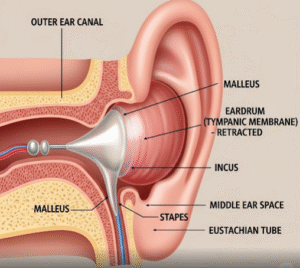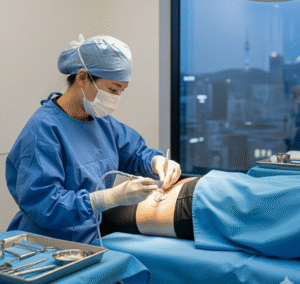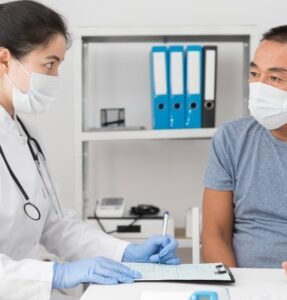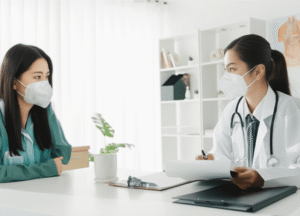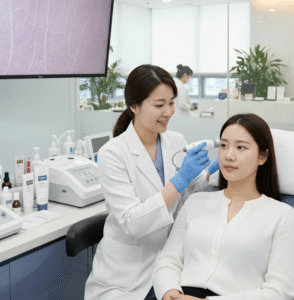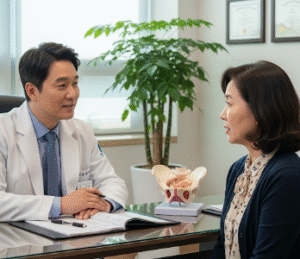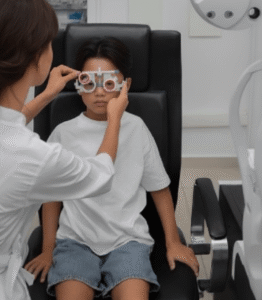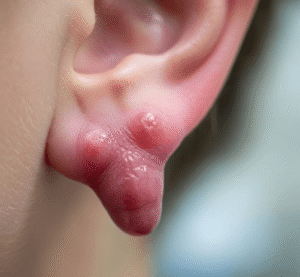What it is
The Respiratory Syncytial Virus (RSV) vaccine is an immunization developed to protect against RSV infections, which are a leading cause of severe respiratory illness in infants, young children, and older adults. RSV can cause bronchiolitis, pneumonia, and serious breathing problems, sometimes requiring hospitalization.
➡ Key Facts:
- ✔ RSV is a highly contagious respiratory virus that spreads through coughs, sneezes, and contaminated surfaces.
- ✔ The vaccine helps prevent serious lower respiratory tract infections caused by RSV.
- ✔ In Korea, the RSV vaccine is recommended for older adults (aged 60+), pregnant women (to protect newborns), and high-risk infants.
- ✔ Multiple vaccine types are available in Korea, including maternal vaccines, infant monoclonal antibody protection, and adult vaccines.
💡 The RSV vaccine is a major medical breakthrough, as no preventive vaccine existed until recent years. Korea has adopted it quickly to protect vulnerable populations.
Why it’s done
Doctors in Korea recommend the RSV vaccine for:
➤ Infants and newborns → Protect against bronchiolitis and pneumonia.
➤ Pregnant women → Provide passive immunity to babies during their first months of life.
➤ Older adults (60+ years) → Reduce hospitalization risk from severe RSV-related lung infections.
➤ High-risk patients → Those with chronic heart disease, lung disease, weakened immunity, or prematurity.
⚠ Without vaccination, RSV is one of the most common reasons for infant hospitalizations and can be deadly in vulnerable seniors.
Alternatives
While vaccination is the most effective prevention, alternatives include:
✔ Palivizumab (RSV antibody injection) → Given monthly to high-risk infants during RSV season but expensive and not widely used.
✔ Good hygiene practices → Frequent handwashing, mask use, and limiting exposure to sick individuals.
✔ Supportive care → Oxygen therapy, IV fluids, and hospital treatment after infection.
⚠ These methods only reduce risks or treat infection, but cannot prevent RSV as effectively as vaccination.
Preparation
Before RSV vaccination in Korea:
🔹 Medical evaluation → Doctors check if patient is in the recommended age or risk group.
🔹 Pregnancy screening → For maternal vaccination, given between 32–36 weeks of pregnancy.
🔹 Allergy check → Important to confirm no prior history of severe allergic reaction to vaccine ingredients.
🔹 Seasonal timing → Vaccines are often scheduled before RSV season (autumn–winter in Korea).
How it’s done
➡ Step-by-step vaccination process in Korea:
- Appointment booking → At pediatric, obstetric, or geriatric vaccination centers.
- Screening → Health history reviewed for chronic illness or allergies.
- Administration → Given by intramuscular injection (IM), usually in the upper arm (adults) or thigh (infants).
- Observation → 15–20 minutes monitoring for immediate allergic reactions.
- Documentation → Recorded in Korean Immunization Registry System for future reference.
Effectiveness & Success Rate
✔ Infants (via maternal vaccine or monoclonal antibodies):
- Reduces risk of hospitalization by 70–80%.
- Protects during the first 6 months of life, when babies are most vulnerable.
✔ Older adults (aged 60+):
- Reduces severe lower respiratory tract infection risk by about 80–85%.
- Decreases hospitalization and ICU admission rates significantly.
✔ Pregnant women:
- Provides passive immunity that shields newborns during RSV season.
Recovery / Expected Outcomes
✔ Most patients recover quickly from vaccination with no complications.
✔ Common mild side effects include:
- Mild pain at injection site
- Low-grade fever
- Headache or fatigue
✔ Protection lasts through the RSV season, but guidelines may recommend seasonal or targeted vaccination each year.
Complications / Considerations
⚠ Possible risks (rare):
- Allergic reaction (rash, swelling, breathing problems) → Emergency care required.
- Mild flu-like symptoms for 1–2 days.
⚠ Special considerations in Korea:
- RSV vaccines are new, so availability may be limited in smaller clinics.
- Priority groups (infants, pregnant women, elderly) are strongly encouraged to get vaccinated before RSV season.
- Ongoing surveillance in Korea ensures vaccine safety and effectiveness.
Treatment Options in Korea (for RSV infection if unvaccinated)
🔹 Diagnosis
- PCR tests, nasal swabs, and rapid antigen tests for RSV detection.
🔹 Medical treatments (supportive care only)
- Oxygen therapy for breathing difficulties
- IV fluids for dehydration
- Antipyretics for fever
🔹 Surgical or advanced therapies
- Rare, but mechanical ventilation may be required in severe infant or elderly cases.
🔹 Rehabilitation & Support
- Pulmonary rehabilitation for elderly patients with RSV-related lung damage
- Parental education programs for newborn care
Top Hospitals & Clinics in Korea for RSV Vaccine
🏥 Seoul National University Hospital (SNUH) – Offers RSV maternal and elderly vaccines.
🏥 Samsung Medical Center (SMC) – Advanced pediatric RSV vaccination.
🏥 Asan Medical Center (AMC) – Comprehensive RSV prevention programs.
🏥 Yonsei Severance Hospital – Specialized in elderly RSV immunization.
🏥 Local pediatric & women’s health clinics – Widely provide maternal RSV vaccination and infant protection.
Conclusion
The RSV vaccine in Korea is a groundbreaking preventive measure against one of the most serious respiratory viruses affecting infants, elderly, and high-risk groups.
✔ Provides strong protection against hospitalization and severe illness.
✔ Safe and well-regulated under the Korean national immunization program.
✔ Available for infants (via maternal vaccination or antibodies), pregnant women, and older adults.
✔ Strongly recommended before RSV season (autumn–winter in Korea).
By adopting RSV vaccination, Korea is taking a proactive step to protect its most vulnerable citizens from a virus that causes widespread illness each year.


